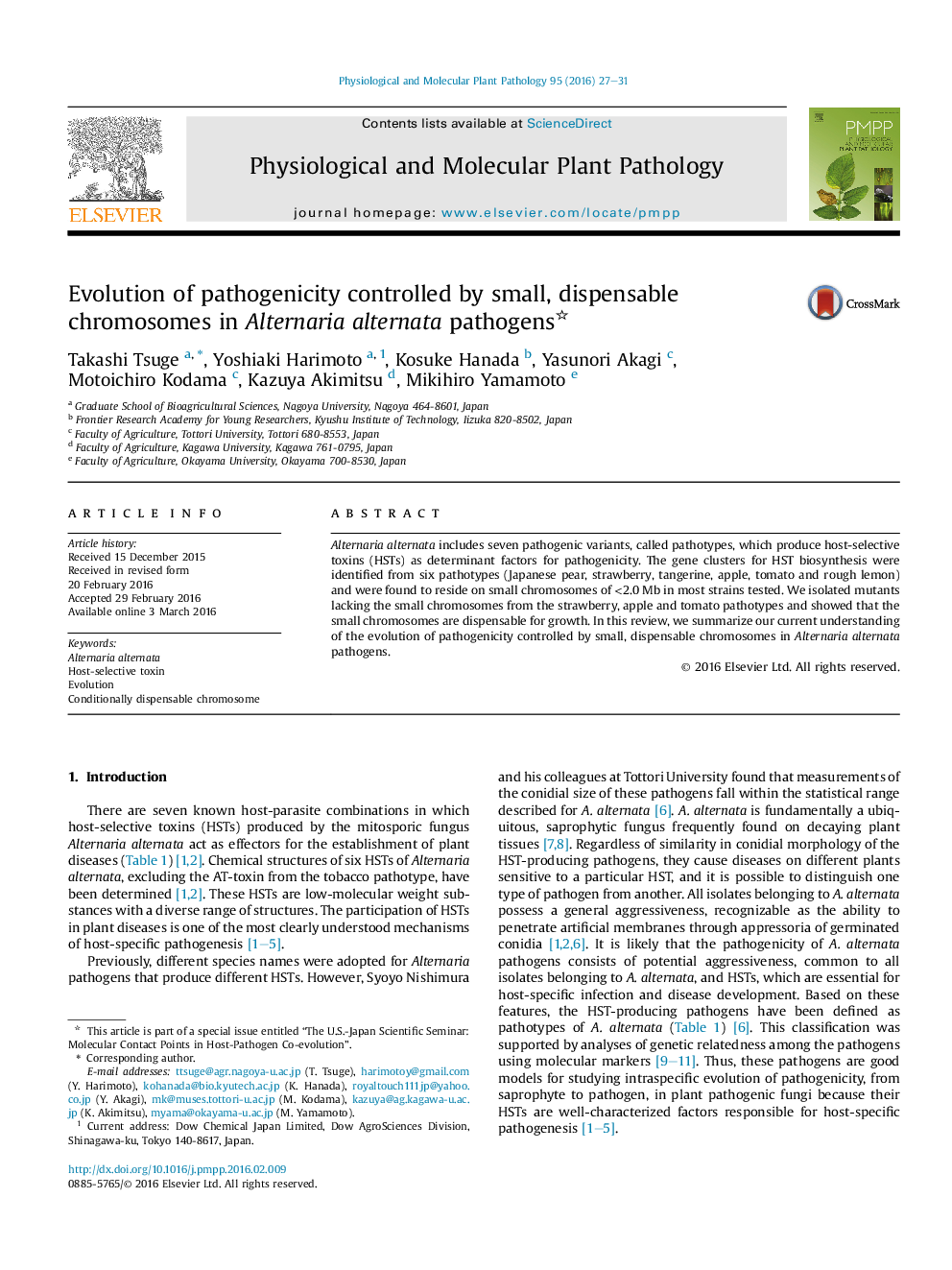| Article ID | Journal | Published Year | Pages | File Type |
|---|---|---|---|---|
| 2836174 | Physiological and Molecular Plant Pathology | 2016 | 5 Pages |
•We summarize recent studies on evolution of Alternaria alternata pathogenicity.•A. alternata includes seven pathogenic variants, designated as pathotypes.•The pathotypes produce host-selective toxins and cause diseases on different plants.•The toxin biosynthetic genes are clustered on conditionally dispensable chromosomes.
Alternaria alternata includes seven pathogenic variants, called pathotypes, which produce host-selective toxins (HSTs) as determinant factors for pathogenicity. The gene clusters for HST biosynthesis were identified from six pathotypes (Japanese pear, strawberry, tangerine, apple, tomato and rough lemon) and were found to reside on small chromosomes of <2.0 Mb in most strains tested. We isolated mutants lacking the small chromosomes from the strawberry, apple and tomato pathotypes and showed that the small chromosomes are dispensable for growth. In this review, we summarize our current understanding of the evolution of pathogenicity controlled by small, dispensable chromosomes in Alternaria alternata pathogens.
